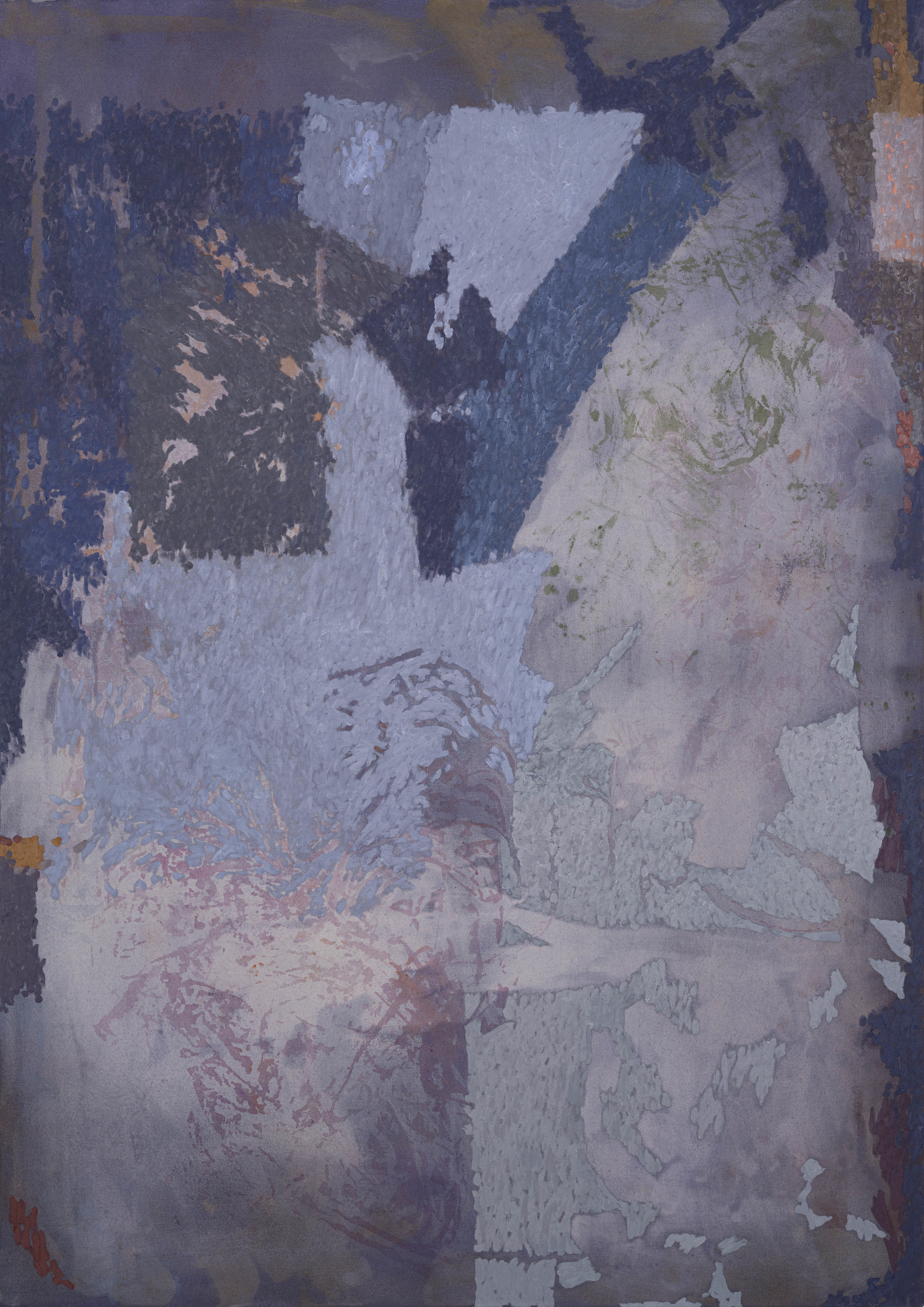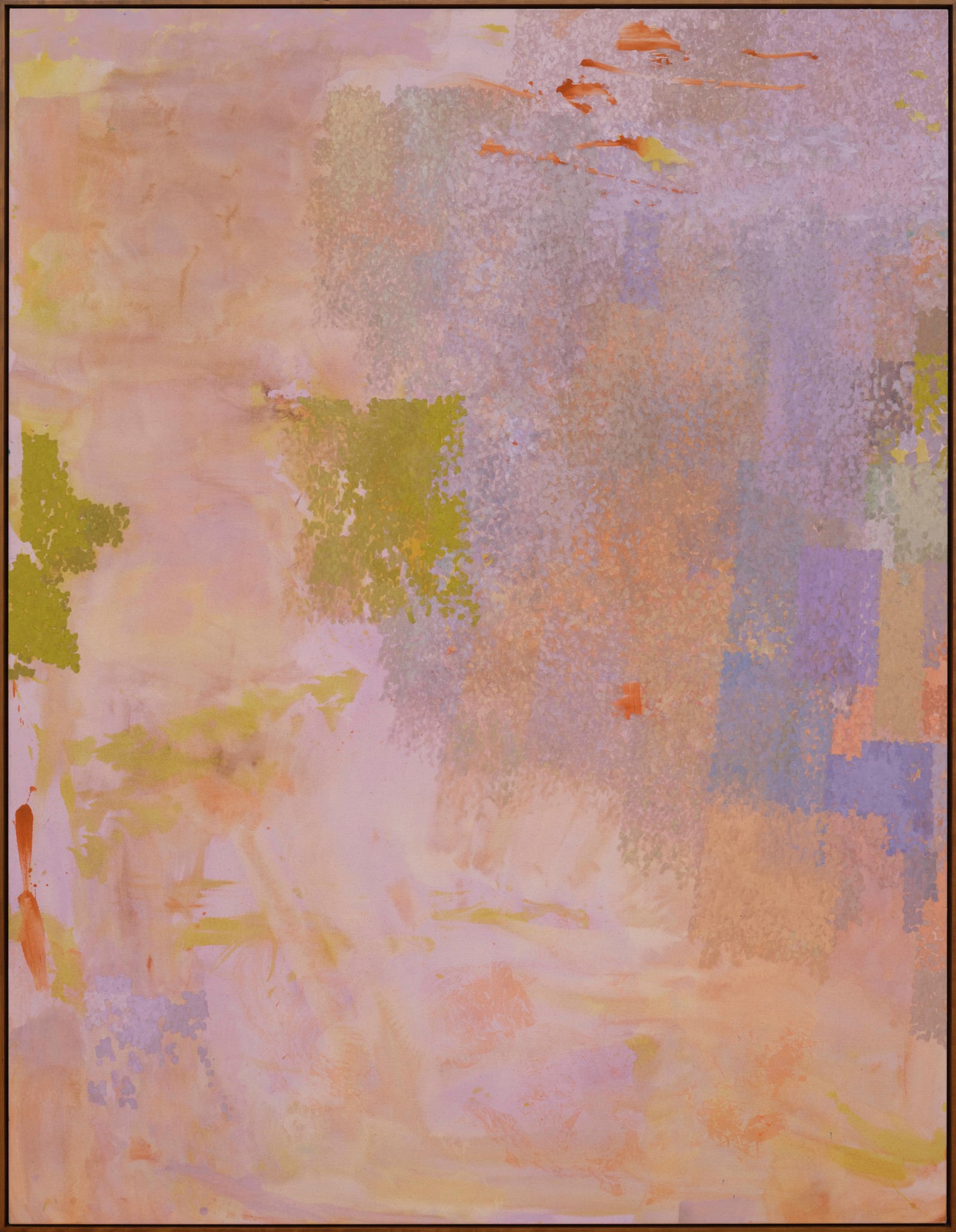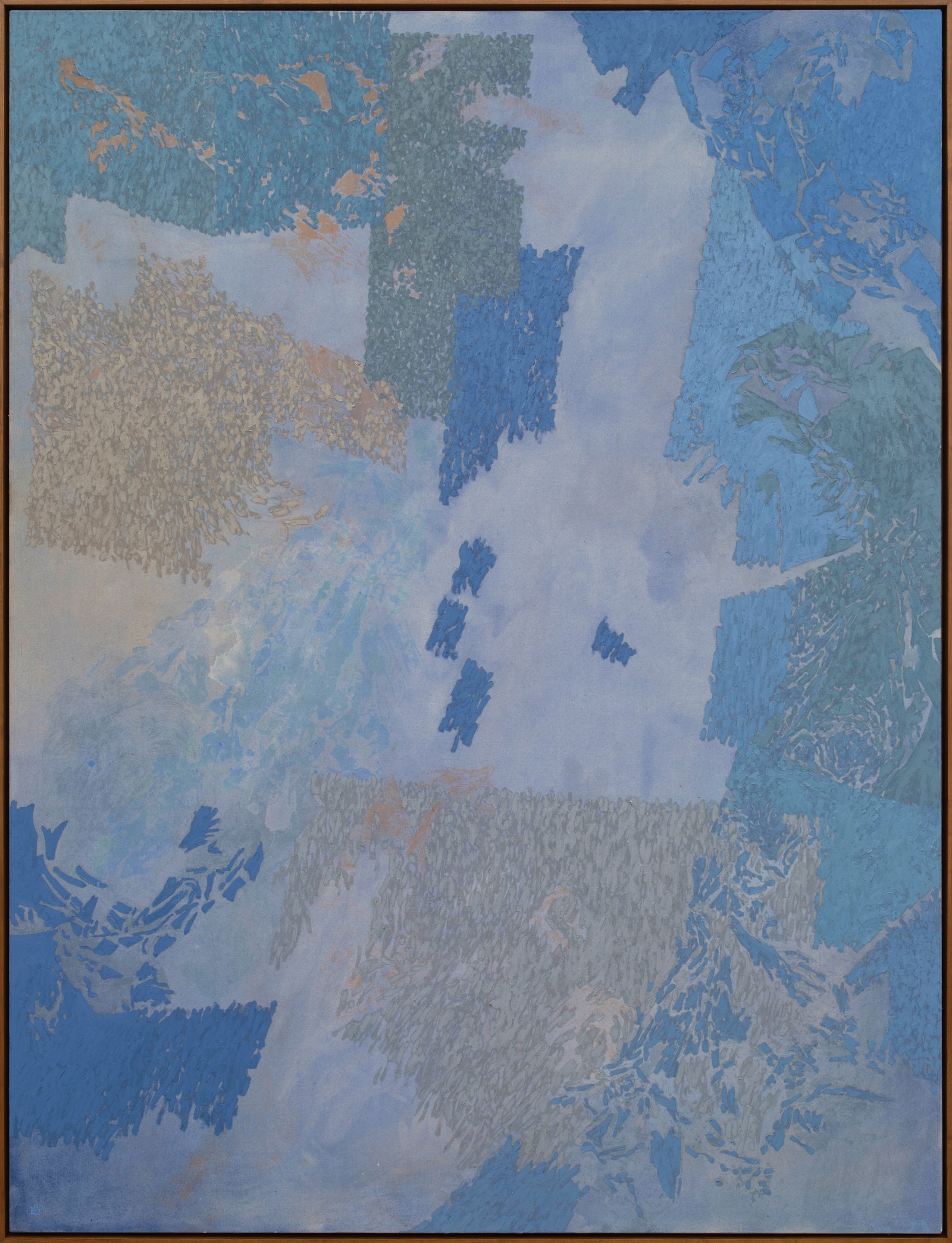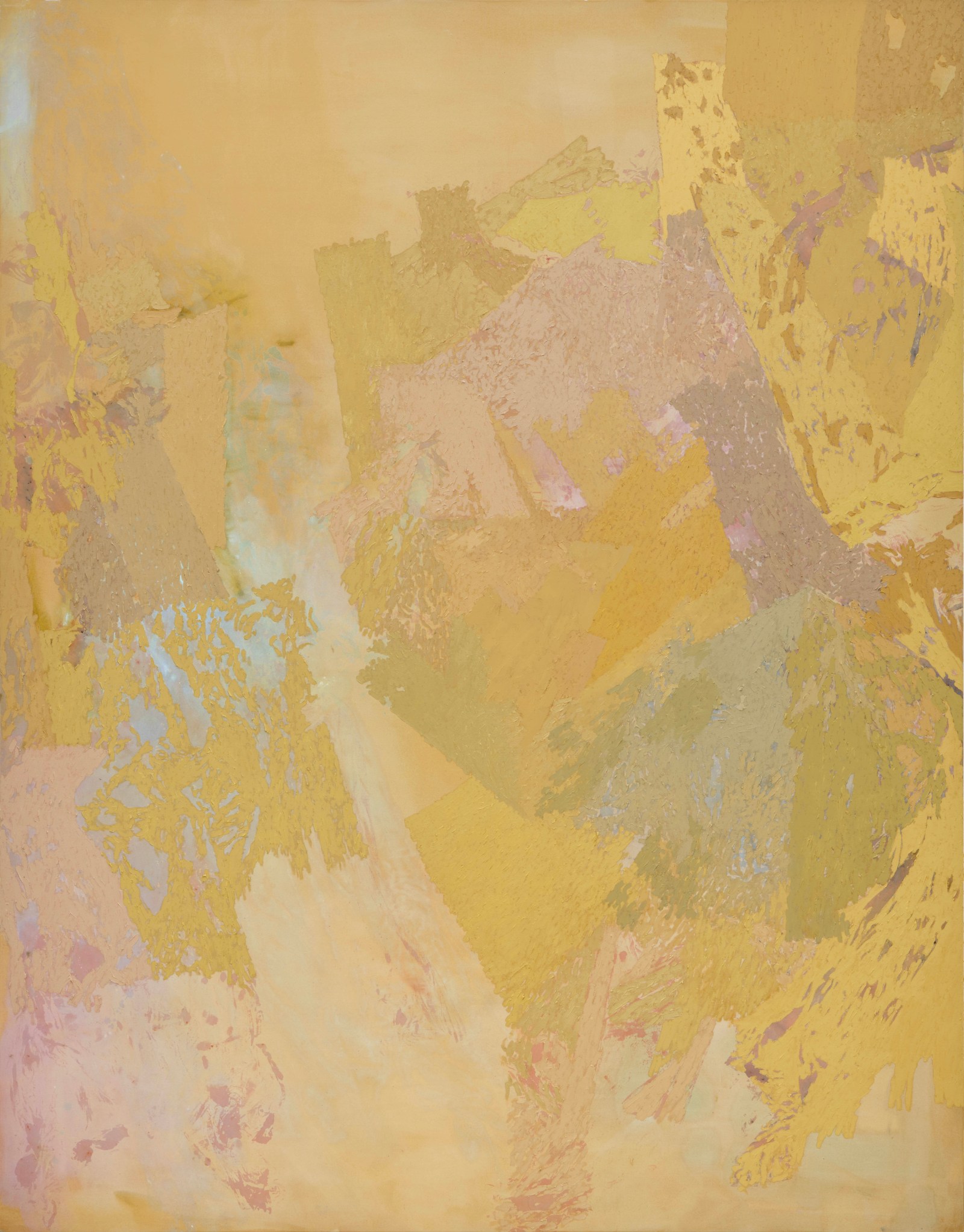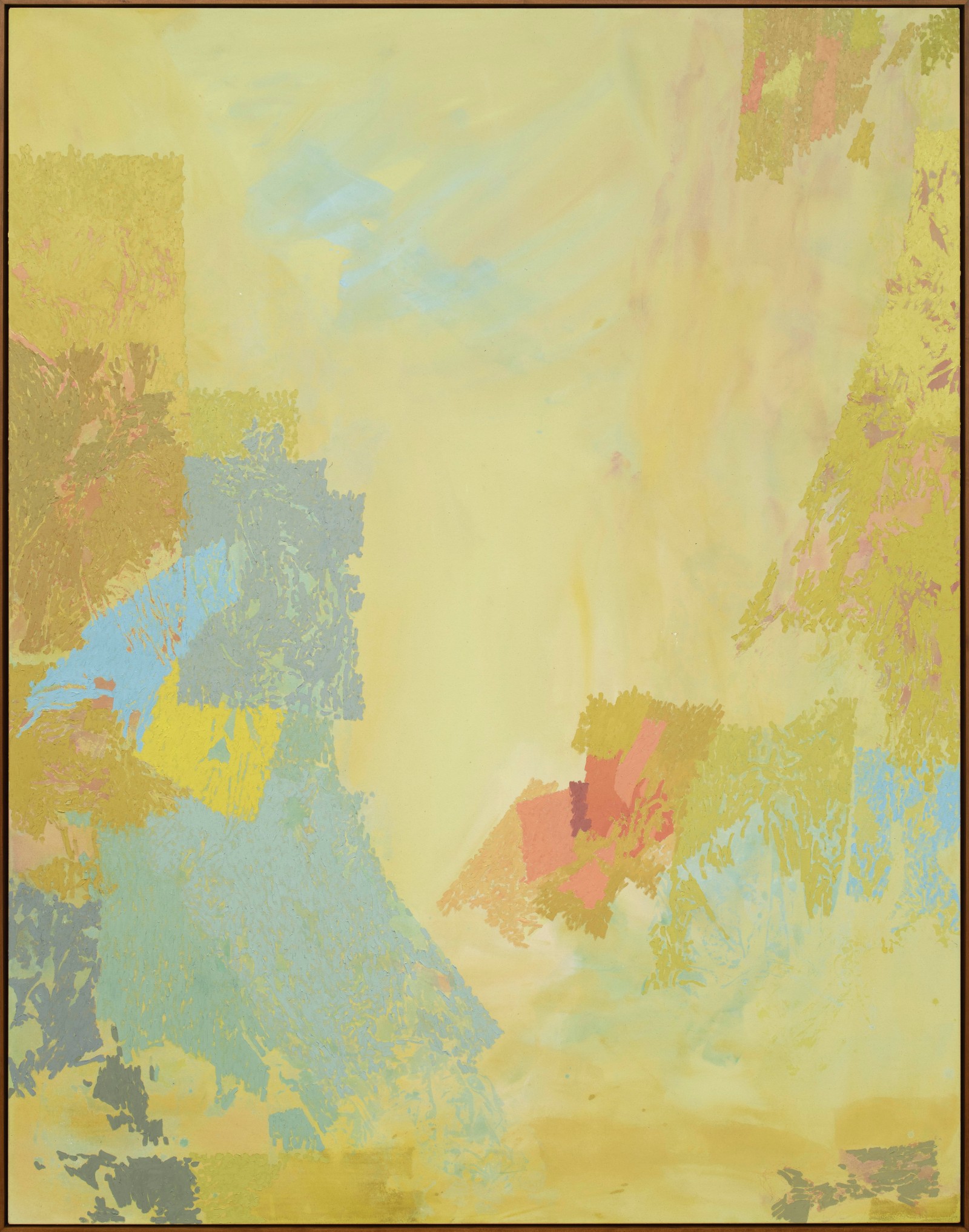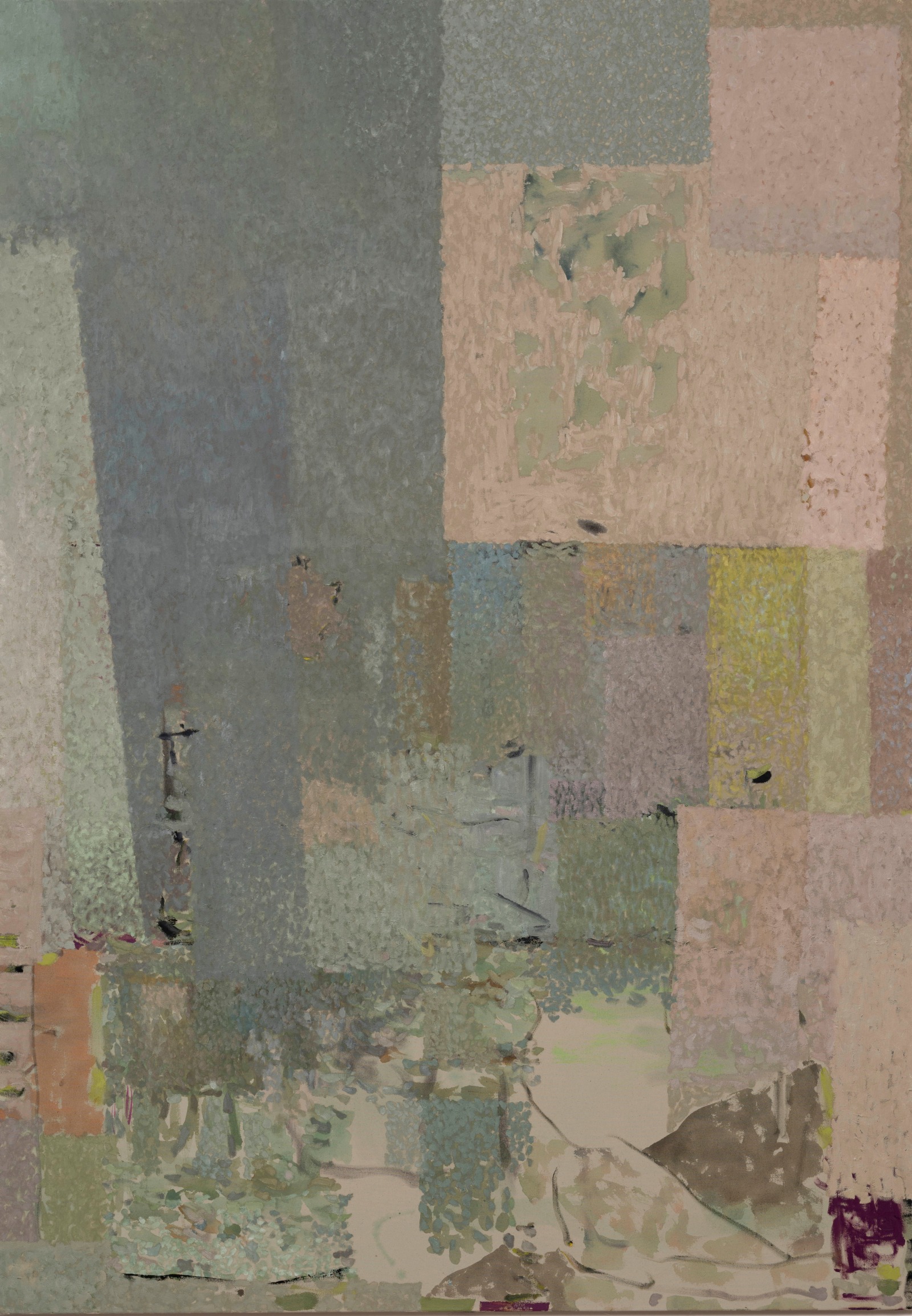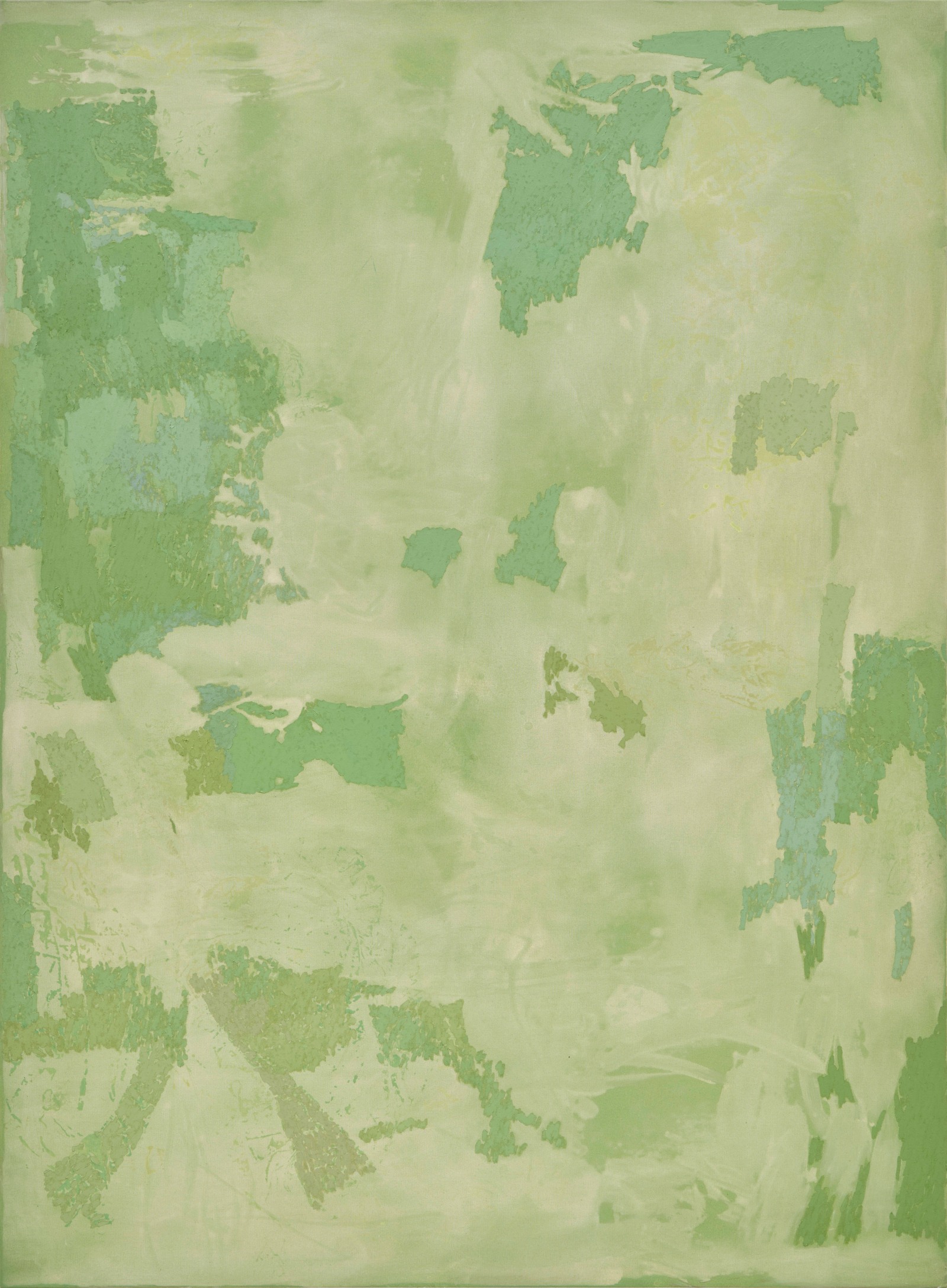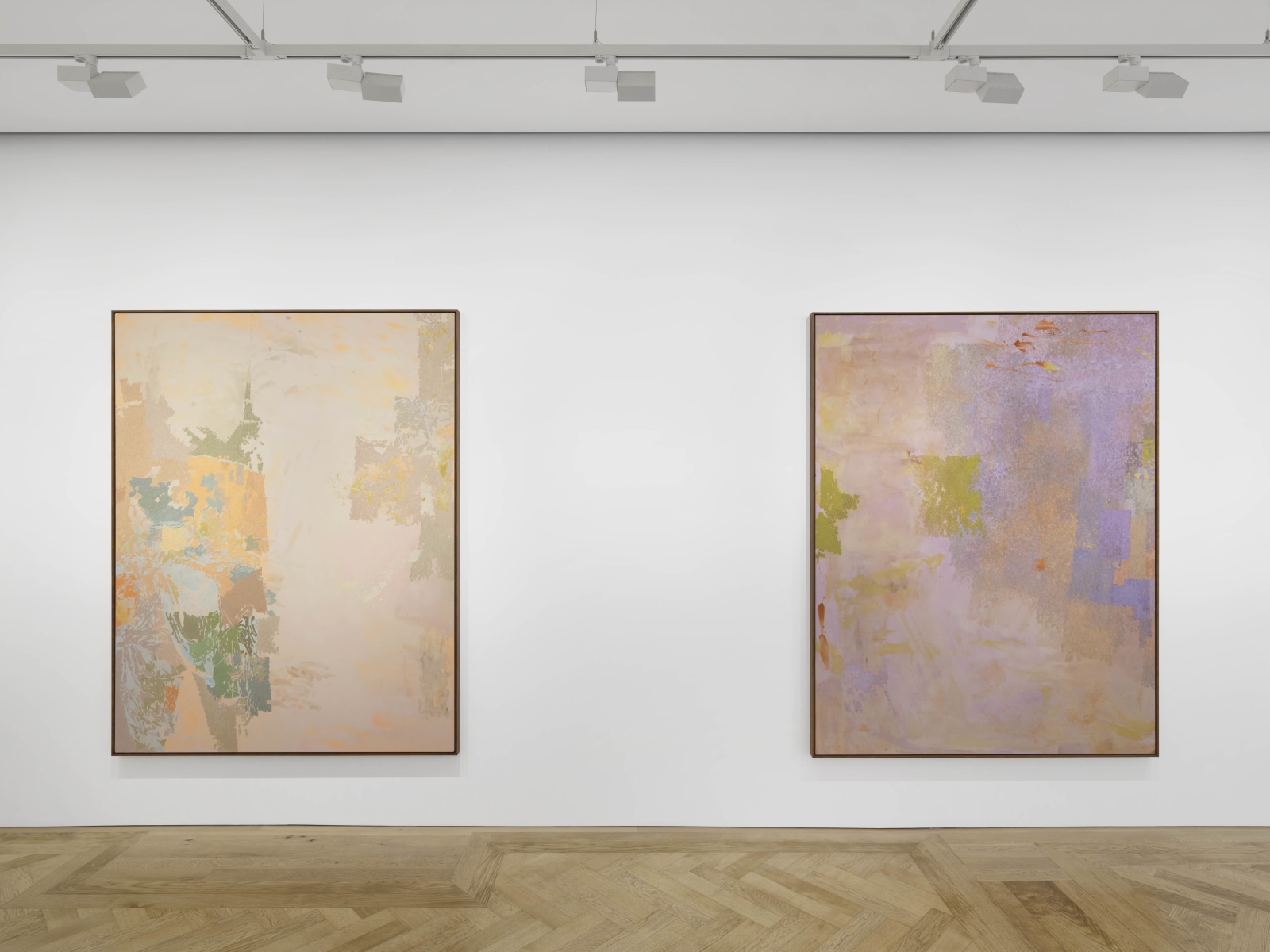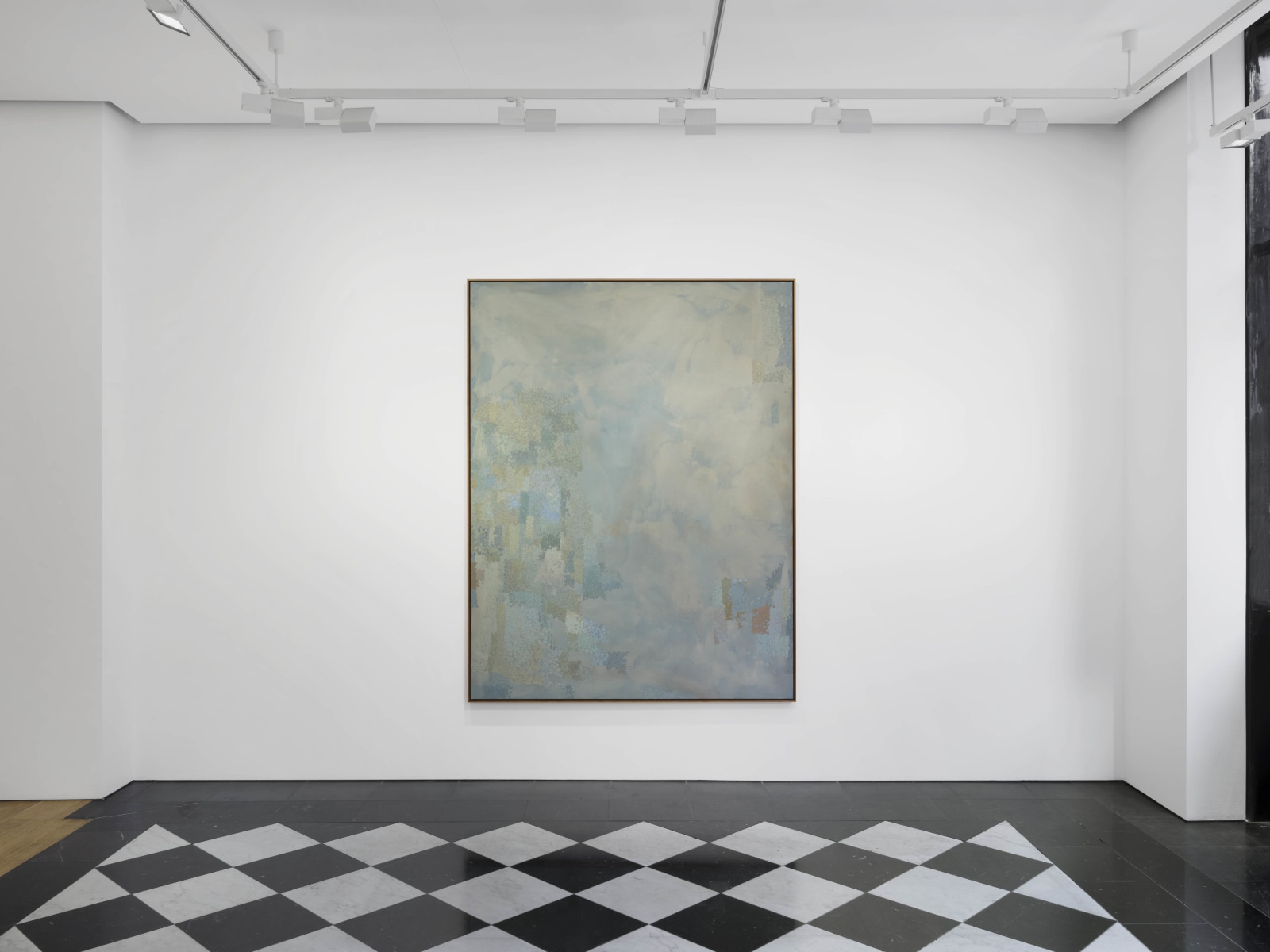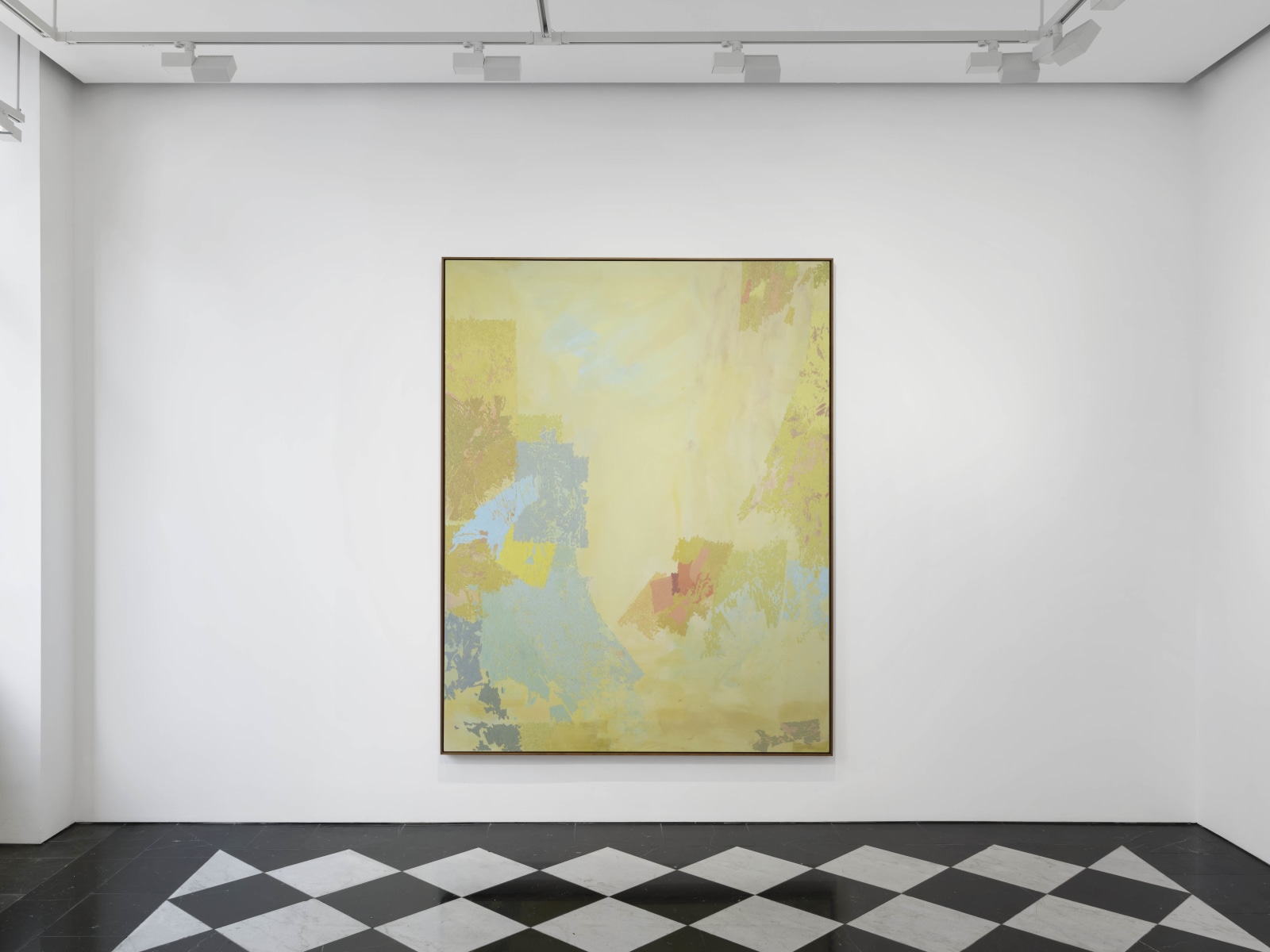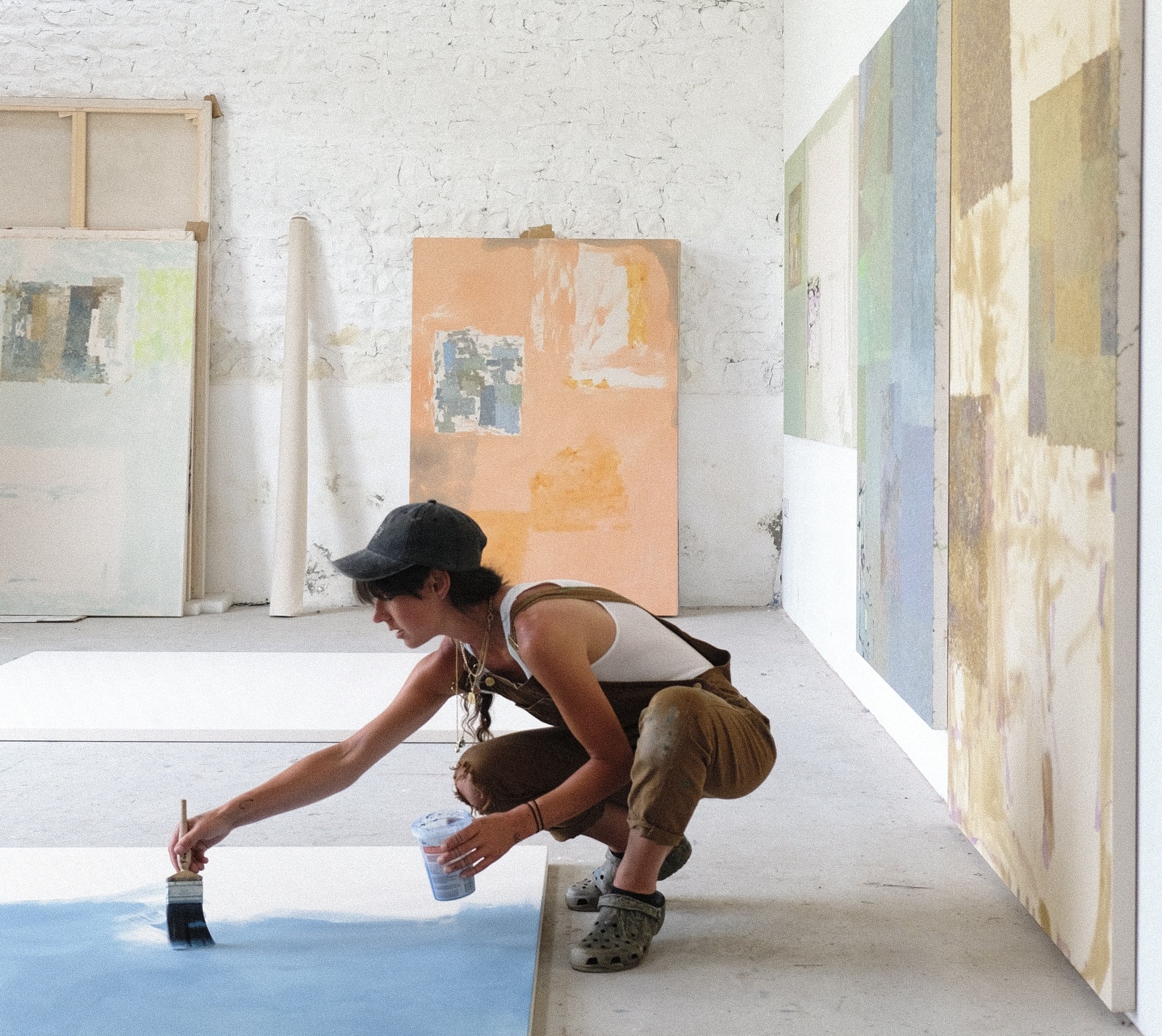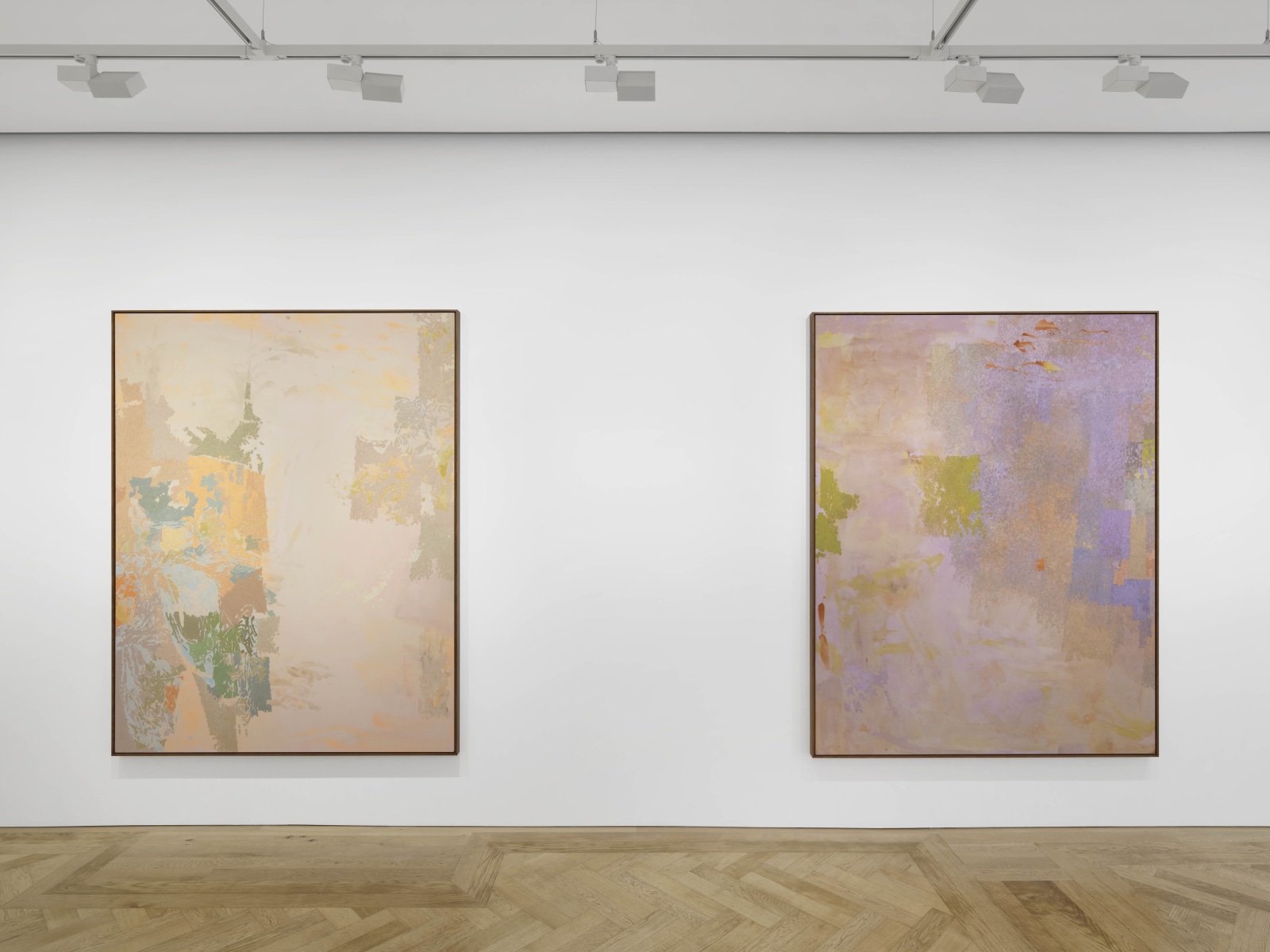READ A NEW TEXT BY DAISY HILDYARD
Pilar Corrias is pleased to present Desire Line, Mary Ramsden’s sixth solo exhibition with the gallery.
Captivated by the sheer range of ideas and images that a passage of paint can convey, from a tuft of grass to a soaring patch of sky, Ramsden revels in the boundless versatility of her medium. The artist brings a range of references to this new body of work, including English landscape painting, the subtle palette and chromatic intelligence of Les Nabis painters Pierre Bonnard and Édouard Vuillard, and a keen engagement with poetry and literature. Ramsden’s title, Desire Line, refers to a phenomenon whereby a path emerges through spontaneous and habitual use, whether in a park, pasture or wilderness.
Based in North Yorkshire, many of Ramsden’s recent paintings reflect the textures of the local landscape as well as the qualities of northern light. The artist considers paint earthy, modest and infinitely adaptable, with the capacity to conjure atmospheres, images and metaphors, all within a single set of brushstrokes.
Dark oxygen (all works 2024) evokes a moonlit landscape, with patches of cool lilacs and silvery blues and greens. Touches of rust and warm colours mark the edges, while the whole painting seems to be embraced by a quivering penumbra. If Dark oxygen has a wintry chill, a sense of abundant, generative life characterises the surface of My desire is not a thinking. In a haze of peachy orange, as if bathed in the light of a sunrise, sections of paint emerge on the canvas like patches of lichen or moss, sedately moving with their own inner force or rhythm. Both paintings express a distilled and unearthly beauty, reminiscent of a mythical landscape conjured by Gustave Moreau, though fractured and emptied of narrative. At the same time, these are meditations on paint itself; each canvas a multivalent space for Ramsden to nurture the ambiguity and potential of her surfaces.
Fascinated by how Bertolt Brecht would have his characters change costumes to foreground the drama’s illusory nature, Ramsden likewise conceives of different passages of paint as characters that might, with a simple shift of emphasis or the viewer’s perspective, become something new. The same section of a painting might evoke a stony field or a pool of dappled light, a cracked patch of ice or a window at night.
Another touchstone for the artist is Robert Motherwell, who, like Ramsden, adapted many of his titles from poetry, and considered abstraction a kind of universal language capable of communicating both powerful emotions and complex thoughts. The exhibition is accompanied by a booklet with an essay by novelist and essayist Daisy Hildyard and a poem by Danielle Wilde.

